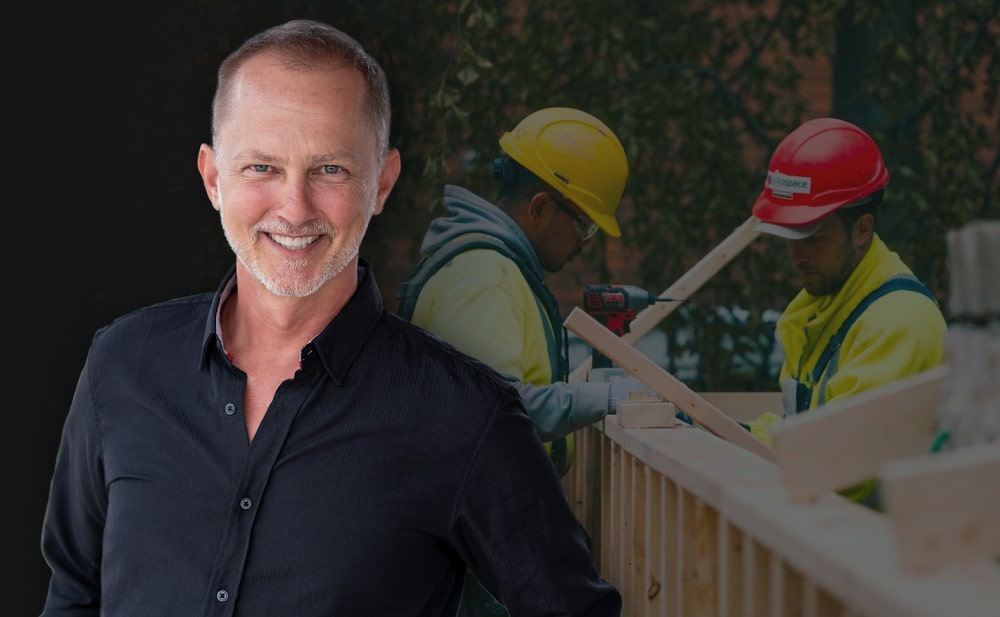We sat down with business coach and frequently featured guest contributor, Ryan Markewich, for a Q&A session and talked about: who he is, his path to where he is now, insights into some key problems in the landscaping industry, and where he sees the future of the green industry going.
Tell us about your company, the services you offer, and your path into the green industry?
I started our business, Creative Roots Landscaping, in 1994 with not much more than a truck, lawnmower, and a desire to pass some time and pay the rent while I worked out what I really wanted to do with my life. It wasn’t long before I saw an abundance of opportunities and found myself wanting to grow. To date, I have brought 3 other deserving and hard-working employees into ownership and operate with a team of about 25 people. We design, build and maintain custom landscapes for nice people who own luxury residential homes and appreciate our attention to detail.
What was the draw in landscaping for you – was it a passion for business, are you entrepreneurial by nature, or are the skilled trades and working with your hands that you love the most?
Hmmmm…I wouldn’t categorize myself as truly entrepreneurial but have been told I am overly driven and possibly even have an addiction to achievement. I did however find passion in the business, its challenges, and what I felt it had to offer me and others who were interested as well. That said, I have always loved being creative, working with my hands, and finding better ways of doing things so I suppose you could say it was a mix of both.
In the beginning, what were some significant areas of the business you struggled with, and looking back, why?
In the very beginning, things really weren’t much of a struggle. I got up each day, went out and did my client work then worked on the business in the evenings and on weekends. But as the business grew and became more than just me and a handful of employees, it became increasingly more difficult to keep alignment and engagement for the simple reason that I didn’t have the type of experience or systems to manage it all.
The vision I had was not clear or shared properly. There weren’t any people systems other than getting a lot done each day and having money left over. There wasn’t any way to keep score and tie the team’s actions to the outcome, and there was no structured bonus system…should I go on?
What were some of the solutions you put in place to solve these issues?
For many years I worked on and built systems that helped me organize the work and increase profitability, but it came to the point where what I had created was not going to be as efficient as needed to scale the business. LMN was a BIG help in streamlining the budgeting, estimating, accounting integration and so many other things. Making the commitment to run the business using Open Book Management helped clear so much head space for me personally. Not that we didn’t and still don’t have problems, but in my opinion, they are better ones rather than bigger ones.
What resources led you down the right path in business, or has it all been through trial and error?
I think that it has always been and will always be trial and error but for the sake of answering your question. I would say undoubtedly that stumbling across the book and business, The Great Game of Business, and implementing their entire system of Open Book Management was what led me down the right path- or you could probably even say saved me!
How can Open Book Management (OBM) help landscape companies achieve better company culture while improving the top and bottom line?
As the pioneers of Open Book Management say: “It’s about People. It’s about Money. It’s about Both”. Meaning that when you are at a point in that stated realization and are willing to do something about it, there comes about the need to intentionally take action to improve the results for all. Adopting OBM then adapting it to your needs literally gives you the framework to fast track, and keep focused while staying interested long enough not to want to go out and find greener grass. We love OBM because it helps us understand that numbers are simply stories about people. It demystifies the financials and other “business” information that is usually kept close to the owner’s chest, and helps everyone learn and speak the common language of business while giving us a line of sight to what’s important to winning.
The proof is out there. Companies that have employees with a higher level of awareness and engagement outperform others in culture and profits. That is true with companies who have employees with only an ownership mindset and even more true with ones who actually have employee-owners.
Why do you think financial literacy is overlooked in our industry, and how do we solve that problem?
Good question. Firstly, I believe that most businesses are not started by entrepreneurs or “business-minded” people but rather technicians who are tired of working for a wage and believe that all they have to do is go out and do the same work they do when they work for someone else. This is the entrepreneurial myth that Micheal Gerber wrote so well about in his best-selling book, The EMyth Why Most Small Businesses Don’t Work and What to Do about it. So in this scenario, there is a lack of financial understanding in the owner right from the get-go so it is difficult and daunting to even begin the process of providing literacy to your team, especially when the demands that face a company owner are to do the actual work, find employees, etc.
Secondly, and I hear it all the time from business owners, employees just need to do their job and don’t have the time or capacity to understand. This is a fear-driven choice, and does not and will never appeal to the higher level of intelligence everyone is capable of tapping into. This type of owner simply don’t understand that with every set of hands you get a free brain.
Say I’m a landscape business that’s sub 1 million dollars. Where do I invest my money first based on some of the pain points you went through when you were in those stages of business based on the problems you were facing?
For me, it was advice from others and hiring a coach. We then had someone with the type of life and business experience we could talk to. It felt like a load off our minds knowing we were not going to once again try to recreate an already round wheel. The clarity and systems that were put in place that most likely would never or perhaps have taken a long time were up and running in short order. After the fact, all the reasons we were giving ourselves for not getting help – we could figure it out ourselves, didn’t want to spend the money, didn’t have time, etc – seemed ridiculous. Sure, there was a real cost associated with hiring a coach, but in my opinion and speaking from first-hand experience, it was nowhere near the cost, both financially and emotionally, of not hiring one.
What about a business that’s in a different stage, say 1-5 million in revenue. What problems are they likely facing based on your experience and the stages of business growth, and how do they solve them, or where do you think they need greater attention to detail?
I wish there was a simple answer to this question. At the heart of what I believe needs to happen in order to take appropriate or next steps comes the needed awareness and understanding of where you are currently. I doubt I could put it better than Ari Weinzwieg did in his take of Edgar Schiens writings where he describes various stages of business so here it is:
Stage 1 – “that crazy, chaotic, high energy, totally focused, necessarily stubborn, almost shockingly resilient, daredevilish way of working—is what those of us who’ve done it lovingly call a startup! ”
Stage 2 – “…most folks are tired when they get to this point; they’re clear, though, that they want more—more clarity, more sales, more success, more profit, more peace of mind, more effective operations.” The leader’s role shifts to include the necessity to “develop people and culture.”
Stage 3 – “is about effectively building an organization. Systems development and effective and consistent processes become critical. Prime organizations know what they’re doing, where they’re going and how to get there. . . . A Prime organization can tell you why they are going to make money. And they do . . .” It’s not that things are in control—to the contrary, nothing is. But when economies dip, key people take ill, competitors open nearby, or whatever other of the fifteen million things that can go wrong do, an organization that’s running in prime will “know” what to do and, generally, if imperfectly, can do it.
The solution lies in the constant awareness and adaptation to new circumstances. For us, it has been the unwavering commitment to running our business using The Great Game of Business system. Built into the fabric of this system and all it encompasses lies the needed education, communication, and rewards, to effectively forecast what’s next and get everyone on the team doing something about it.
Best advice for aspiring next-gen landscapers wanting to start a business in the green industry?
Nothing excites me more than someone with the desire to create something great. I can even get teary-eyed just watching Shark Tank or Dragon’s Den hearing the stories of the personal distance people are willing to go to in order to make their dreams come true. As for advice:
Read and self-reflect more.
Learn how to define what it is you are trying to achieve, document and share it with others to avoid wasted time with people who are not in alignment with you.
Write down a belief statement, a compellingly written Vision of organizational greatness, your Value Proposition, Brand Promise, a Mission/Purpose Statement that you can look to on the dark days to bring you back to why you are doing it all in the first place, and a well thought out set of Core Values are all items that create the type of clarity needed to win BIG.
Use an operating system to guide you as we have. Again, LMN and Open Book Management are what I feel has given us the greatest advantage in business. The system will set you free and when you are free you spend more time working on the future of your life and business.
Stay in your lane. Once you have found something you know deep down to be right for you like I did with Open Book be careful of the “noise” and shiny objects that will present themselves. Learn as much as you can while involving and treating others like you want them to stay forever.
If you want more fantastic takeaways from Ryan Markewich, he recently joined Landscape Disruptors to chat with Stan “The Dirt Monkey” Genadek, and the Vice President of The Great Game of Business and author of Get in the Game, Steve Baker. Ryan and Steve go into great detail discussing the reasons for financial literacy in the workplace, and how to create a company culture where staff think like owners and make better decisions to benefit the business.




